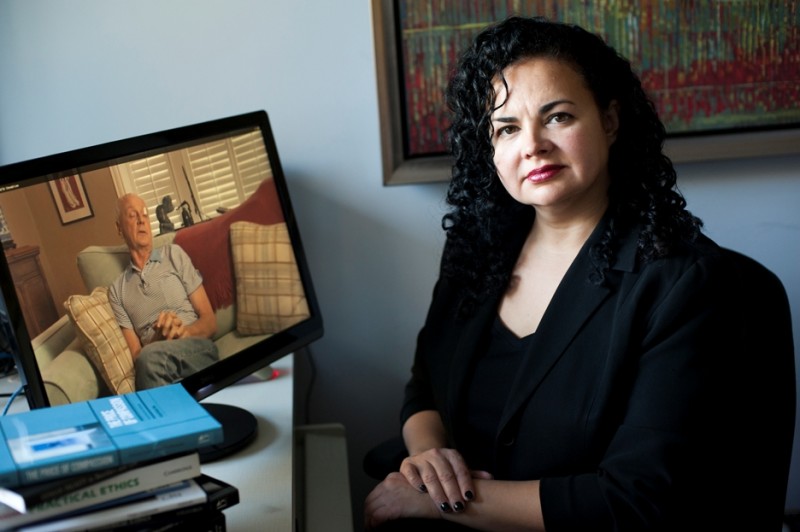
The Supreme Court of Canada // Photo: Supreme Court of Canada
Assisted death in Canada: We are at a fork in the road
The following is an opinion piece faculty of law professor Mary Shariff wrote for the Winnipeg Free Press. UM Today has previously featured Shariff’s thoughts on this topic and the University of Manitoba will explore this topic at the April 30, 2014 Visionary Conversations.
No matter how we legally clothe the idea of autonomy, whether it is argued as equality, security or liberty, it is still autonomy.
If the practice and definition of assisted death advances on the basis of autonomy, it is easy to predict it will not be constrained because the same arguments — equality, security and liberty — will facilitate its reach into the lives of all persons for whom the world is or has become indifferent or unresponsive, regardless of the cause.
Canadian cases that have challenged the prohibition of assisted suicide and euthanasia have tended to involve progressive neurodegenerative diseases such as ALS and MS.
In countries that have legalized assisted death, however, the biggest uptake is by patients with cancer (about 65 per cent to 79 per cent) followed by cardiovascular and pulmonary disease (about 6.5 per cent to 15 per cent) and neurological or neurodegenerative disorders (about six per cent to 10 per cent).
Furthermore, becoming a burden on family, friends and caregivers is among one of the top five concerns given by our Oregon and Washington neighbours requesting physician-assisted death.
The percentage of participants voicing the concern of becoming a burden has been increasing in Oregon from an average of 39 per cent in 1998-2012 to 49.3 per in 2013 and in Washington from 54 per cent in 2011 to 63 per cent in 2012.
Additionally, trends in Belgium and the Netherlands (both of which legalized euthanasia in 2002) demonstrate a loss of will to live longer and a desire to end their lives among the elderly, and not only in those suffering from terminal illness or multi-morbidity.
Add to this an aging population globally — a trend from which Canada is not immune.
Canadian law and the protections of equality, security and liberty as well as life, do not simply drill down to a jewel of perfect autonomy.
These protections also represent a society of ideals that seeks and strives for inclusion not exclusion, compassion not contempt, accessibility not burden, assistance not abandonment.
So what about the values of inclusion, compassion, accessibility and assistance? Shouldn’t the weak, vulnerable and most fragile among us find themselves living in places and spaces that give them just as much to look forward to next week as the strong, the powerful and the young?
We are coming to a fork in the road. Are we certain we wish to choose a path that generates a simplistic law with significant potential to systematically remove from ourselves the very impetus that has made us dream, strive and reach to make the world a better place for every single Canadian?
The scope of the legal inquiry into the prohibition is not simply about whether an individual who wishes to die should be allowed to do so. Rather, it must probe into how the law should respond to suffering. And, it might well be the case that, in some circumstances, a response by criminal law is not the most appropriate.
Yes, the world is changing. It can be for the better, and cures, if we desire them, are achievable.
In the interim, we need our laws to continue to uphold our Canadian commitment to care, and in particular, the kind of care that facilitates and expands our capabilities and intelligence for individualized compassionate responses to the extraordinarily personal and unique suffering of our fellow Canadians.
Perhaps in the next round of opinion polls, we might consider asking ourselves whether the “majority” of Canadians support assisted death because Canadians care.
Or is it just possible some Canadians voice support for assisted death because of a view that “hey, it’s their life” and “I don’t really care”?
It is incumbent upon Canadians to guard against institutionalizing apathy, or mistaking apathy for protection of autonomy.
This aspect of the assisted-death issue, the question of “do we care?” is one that merits our sincerest attention and deepest reflection.
Republished from the Winnipeg Free Press print edition April 10, 2014 A11
Research at the University of Manitoba is partially supported by funding from the Government of Canada Research Support Fund.







